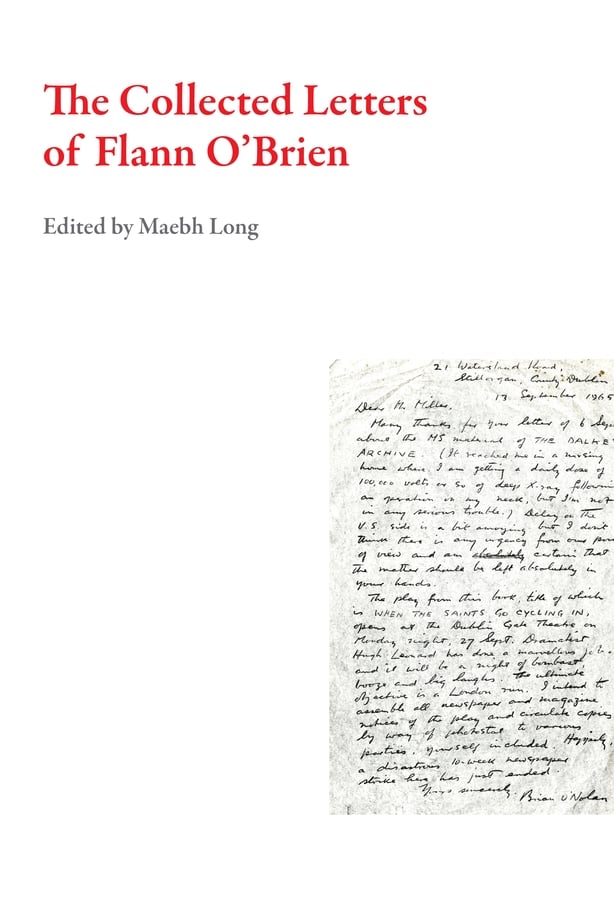He wrote under various names, notably Myles na gCopaleen and Flann O’Brien, but he was in fact born Brian O’Nolan (1911-1966), a name which in time changed to Brian Ó Nualláin. His letters afford valuable insights, not just into the mind of the writer, but into the social mores of mid-twentieth century Ireland.
Running to over 600 pages, and edited by Maebh Long, the volume includes indexes of the complete works and the long list of his correspondents who were the recipients of the O'Brien brand of literary scald. Included are sprightly, terse, or audaciously witty missives, many of them addressed to fellow authors such as the American novelist, William Saroyan. "I don’t understand the way you make ordinary things uproarious and full of meaning and sentiment and make yourself appear saner than everybody else merely by being crazy, " he writes perceptively to Saroyan.
Letters to Irish writers such as Hugh Leonard, James Plunkett and Ethel Mannin feature among the highlights.There are letters about plays to Hilton Edwards and Ernest Blythe.There are notes of gratitude, such as the one to his publisher John Cannon, thanking him for an eight pound cheque for his novel An Béal Bocht, translated into English as The Poor Mouth, and often unfairly neglected in favour of the best-known novels The Third Policeman and At Swim Two Birds. The protagonist of that wonderful satire is Bónapárt Ó Cúnasa, resident of Corkadoragha, a remote townland where it rains incessantly and where all the inhabitants live in terrible poverty.

The writer admits that laziness had prohibited him from getting out a Christmas miscellany of his Irish Times Cruiskeen Lawn columns for 1943, penned under his Myles na gCopaleen moniker. Adopting an air of brisk rolling-up of sleeves as the New Year begins, he suggests that work on compiling a proposed miscellany for the following Christmas should begin now – January 1944 – as he envisages an edition in Irish and another in English. "Anything sells now days, JJ O’Leary did one and the stuff wasn’t good, " he writes, crisply enough.
Referred in another letter to "a stupid nurse" who knocked over a glass seems an unkind judgment on the poor woman. However, such hastiness is not characteristic of the tone of the letters in general.
The old corrosive playfulness and propensity for sophisticated inter-lingual word games are in evidence in a letter to The Irish Times of January 17, 194. Myles regrets that he cannot submit columns for the present as he is writing from hospital where he is ensconced as a result of an accident involving the fracture of a femur. He writes in Gaeilge, punning between languages: (femur tharla go minic cheana) and immediately translates it thereafter: `as has often happened in the past.’
No writer, then or since, in these islands could quite do that off-the-wall wit with such apparent ease, nor could any Irish writer indulge a surreal imagination to such fine effect. His was a rare gift indeed.
Read an extract from the Collected Letters here.







